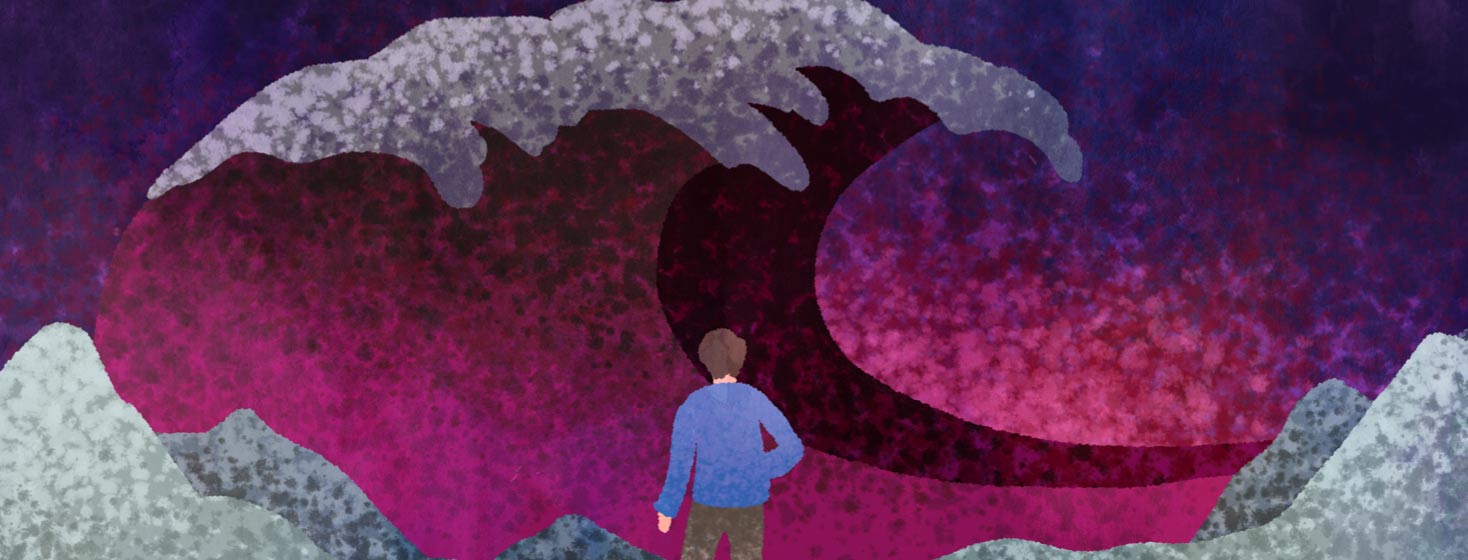Ten Years Blue in a Sea of Pink
There's a lot I've learned since my breast cancer diagnosis in early 2014. It's obviously a dramatic, even traumatic diagnosis, but, as a guy, hearing "sorry, but you have breast cancer" is a double whammy.
Unfortunately, very many men are reluctant to report or even discuss most health issues, and a potential breast cancer diagnosis would be in this category. And since we are but 1 percent of new diagnoses, the media focus on women can make it challenging for men or nonbinary people with the disease to find relevant information and support.
Male breast cancer advocacy strategies
Over the past 10 years, so much has changed for me personally. Fortunately, the message that breast cancer is a genderless disease has grown significantly, and community awareness is much more widespread. To assist those looking to advocate, here are some of the strategies I've found effective to help raise awareness and ensure that men with breast cancer are both recognized and supported.
Advancing education
I found partnering with cancer organizations an effective way to share information and resources for men. Most organizations are generally receptive to feedback and are expanding their site content and printed matter to be more inclusive.
Sharing personal stories of cancer
Around a dozen pink charities have published at least one of my stories, interviews, and podcasts about my time as a male breast cancer survivor. Most now include imagery and testimonials of affected men to reinforce the message that breast cancer has no gender boundaries. I discovered that it often takes several years for a pink charity to make changes, but generally, they now even design campaigns specifically focused on male breast cancer.
Sharing personal stories is often the best way to connect with men recently diagnosed and those going through treatment. These men want to hear from others who have been there and done that with breast cancer.
The stigma diagnosed men encounter is real. So, while there's plenty of general information online, nothing beats personalized first-hand experiences, and one-on-one mentoring is even better. Writing articles or op-eds for newspapers, magazines, or online platforms amplifies the message to a broader audience. I try to highlight the unique challenges men face and the need for more inclusive awareness.
In recent years, the medical industry has reached out to breast cancer influencers to collaborate with those who have a large following to spread the message about male breast cancer.
Engagement with healthcare professionals
By working with medical professionals who were very aware of breast cancer in men, I found them very receptive to receiving support and resources. Plus, they were willing to include information on male breast cancer in their patient education materials. More than anything, it points out the inequity of treatment for men compared to women. My friend, the late Rob Fincher, and I produced the Male Breast Cancer Manifesto to highlight the issues men face when left out of better care.
Forming support groups and networks
Forming or joining support groups specifically for men with breast cancer helps to pay it forward. These can be local meetups or online communities where men can share their experiences and support each other. Together, it's possible to be a louder voice for funding for research to understand the unique aspects of and improve treatment options for men.
Policy changes
Many groups advocate for policy changes that ensure male breast cancer is included in public health campaigns and funding. Others work towards establishing an awareness day or month specifically for male breast cancer.
Look for inclusive language
Finally, always be aware of charities and even public agencies that don't use inclusive language when they talk about breast cancer. Too often, I've had to point this out, and generally, changes are made to their published material, which makes their information inclusive of all genders.
I am grateful to the many women who have helped and supported me over the last 10 years.
By taking these steps, you can help create a more inclusive environment where the challenges faced by men with breast cancer are acknowledged and addressed. This can lead to better support systems, more relevant information, and increased awareness about breast cancer in men.

Join the conversation